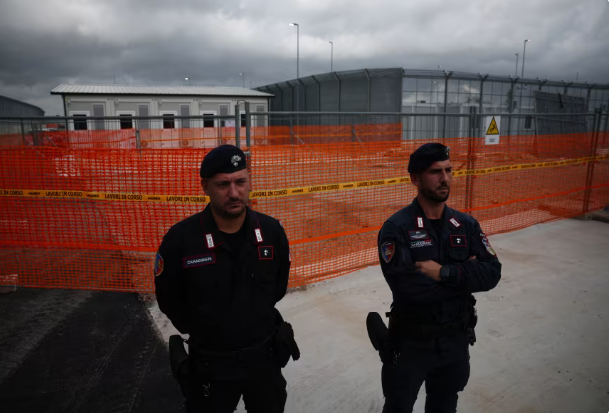
European efforts to relocate asylum seekers to offshore processing centers have been thrown into uncertainty following a landmark ruling by the European Court of Justice (ECJ). The court’s decision casts doubt on the legality of Italy’s controversial deportation scheme in Albania and threatens to derail similar plans across the European Union.
Court ruling challenges Italy’s offshore model
On Friday, the ECJ ruled that while Italy can continue operating its migrant facilities in Albania, stricter conditions must apply to the transfer of asylum seekers. The judgment requires EU states to carefully assess the safety of each migrant’s country of origin and ensure no individual is sent to a place where they face potential persecution.
The court emphasized that a “safe country of origin” designation can only be applied after effective judicial review and must consider vulnerable and marginalized groups. This ruling directly affects Italy’s centers in Shengjin and Gjader, which currently hold migrants from countries like Egypt and Bangladesh.
Impact on EU migration policy
The ruling comes as the EU prepares to implement new asylum regulations in June 2026, which would allow member states to create national “safe country” lists to speed up deportations. The EU’s current reference list includes countries such as Bangladesh, Morocco, Tunisia, India, Egypt, Colombia, and Kosovo.
However, human rights groups argue that these classifications are misleading. Amnesty International noted in July that, although only around 20% of asylum claims from these countries are approved, the very fact that thousands are granted protection proves that these nations are not safe for all residents.
The ECJ ruling arose from a case involving two Bangladeshi asylum seekers detained in Albania, who argued that returning to their homeland posed serious risks. Their appeal triggered the legal review that now complicates the EU’s broader migration outsourcing strategy.
Costly and controversial Italian-Albanian partnership
Italy’s offshore model, championed by Prime Minister Giorgia Meloni, has been widely debated since it launched in 2023. The scheme involves building multi-million-euro detention centers in Albania to house migrants intercepted at sea before their asylum cases are processed.
A University of Bari study revealed that the project has already cost over €74.2 million ($86 million) and labeled it “the most costly, inhumane, and useless instrument in Italian migration policy history.” Critics say it does little to curb arrivals while exposing asylum seekers to harsh conditions and legal uncertainty.
Despite the criticism, the EU initially celebrated Italy’s approach. European Commission President Ursula von der Leyen and former Council President Charles Michel endorsed the plan as a “fair but firm” model for migration management.
Political backlash and uncertain future
Following the court’s decision, Prime Minister Meloni denounced the ruling as a “short-sighted” move that undermines efforts to combat illegal immigration. She argued that the decision reduces the power of national governments to manage migration and protect their borders.
The future of EU offshore processing plans now hangs in the balance. While Italy’s Albania centers remain operational, nearly a dozen migrants from countries like Bangladesh and Egypt are awaiting their fate, as legal reviews determine whether their deportations can proceed under the new judicial standards.
This ruling is expected to reshape Europe’s asylum strategy, forcing member states to weigh human rights obligations against political pressure to curb irregular migration.
